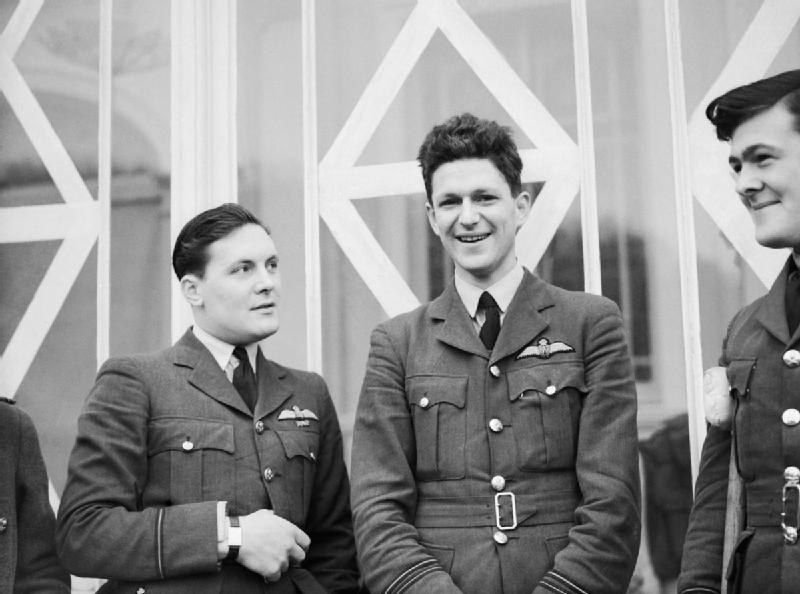from wikipedia
Wing Commander Eric James Brindley Nicolson , [VC], [DFC-Distinguished Flying Cross] (29 April 1917 – 2 May 1945) was a fighter pilot in the Royal Air Force and a recipient of the Victoria Cross, the highest award for gallantry in the face of the enemy that can be awarded to British and Commonwealth forces.
Nicolson was 23 years old and a flight lieutenant in [No. 249 Squadron during the Second World War when he was awarded the Victoria Cross. On 16 August 1940 having departed RAF Boscombe Down, near Nicolson’s Hawker Hurricane was fired on by a Messerschmitt Bf 110 , injuring the pilot in one eye and one foot. His engine was also damaged and the petrol tank set alight. As he struggled to leave the blazing machine he saw another Messerschmitt, and managing to get back into the bucket seat, pressed the firing button and continued firing until the enemy plane dived away to destruction. Not until then did he bail out, and he was able to open his parachute in time to land safely in a field. On his descent, he was fired on by members of the Home Guard, who ignored his cry of being a RAF pilot.
The announcement and accompanying citation for the decoration was published in supplement to the London Gazette on 15 November 1940, reading
Air Ministry, 15 November 1940.
The KING has been graciously pleased to confer the Victoria Cross on the undermentioned officer in recognition of most conspicuous bravery : —
Flight Lieutenant James Brindley NICOLSON (39329) — No. 249 Squadron.
During an engagement with the enemy near Southampton on 16th August 1940, Flight Lieutenant Nicolson’s aircraft was hit by four cannon shells, two of which wounded him whilst another set fire to the gravity tank. When about to abandon his aircraft owing to flames in the cockpit he sighted an enemy fighter. This he attacked and shot down, although as a result of staying in his burning aircraft he sustained serious burns to his hands, face, neck and legs. Flight Lieutenant Nicolson has always displayed great enthusiasm for air fighting and this incident shows that he possesses courage and determination of a high order. By continuing to engage the enemy after he had been wounded and his aircraft set on fire, he displayed exceptional gallantry and disregard for the safety of his own life
Fully recovered by September 1941, Nicolson was posted to India in 1942. Between August 1943 and August 1944 he was a squadron leader and commanding officer of No. 27 Squadron, flying Bristol Beaufighters over Burma. During this time he was awarded the Distinguished Flying Cross
As a wing commander, Nicholson was killed on 2 May 1945 when a RAF B-24 Liberator from No. 355 Squadron in which he was flying as an observer, caught fire and crashed into the Bay of Bengal . His body was not recovered. He is commemorated on the Singapore Memorial
Nicolson was the only Battle of Britain pilot and the only pilot of RAF Fighter Command to be awarded the Victoria Cross during the Second World War. Nicolson’s Victoria Cross is displayed at the Royal Air Force , Hendon, England.
